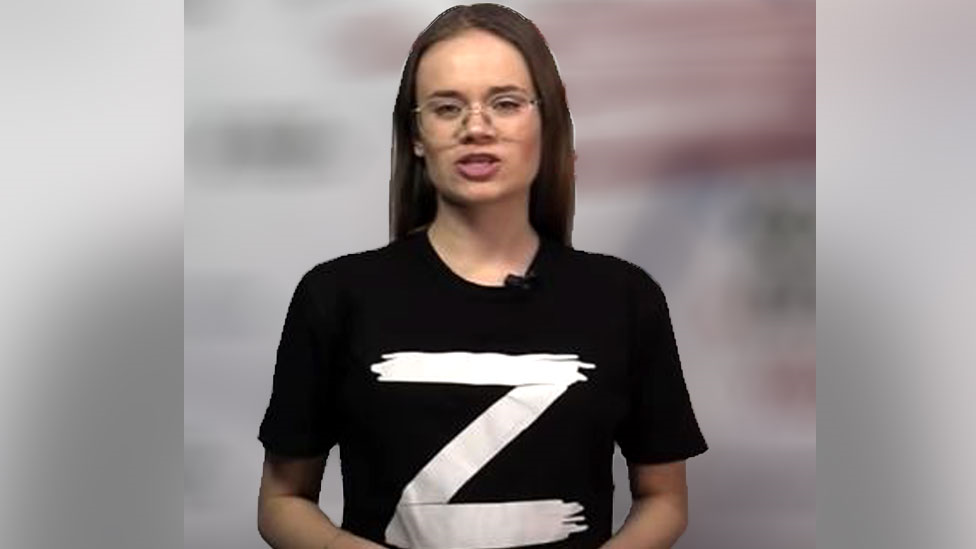Ukraine round-up: 100 days of war and some Russians refuse to fight
- Published
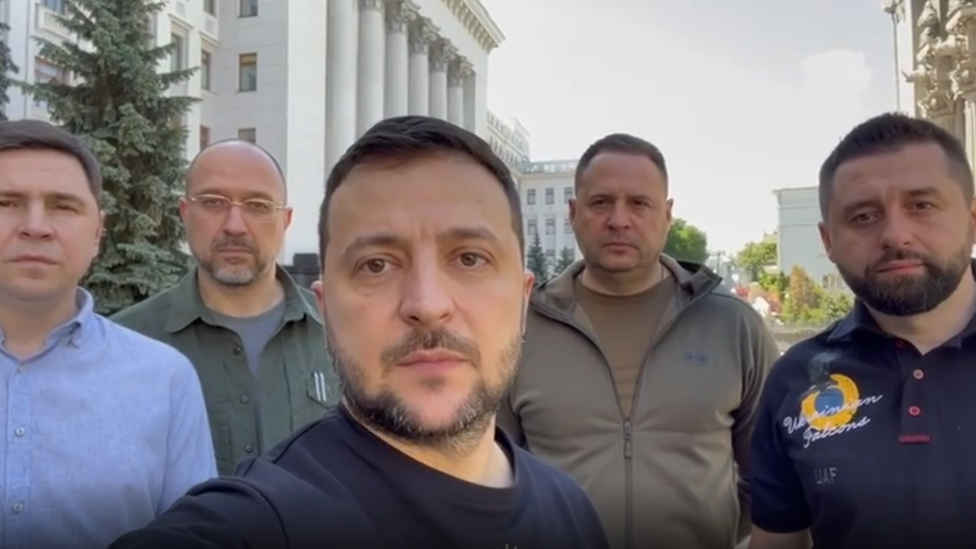
This photo on the war's 100th day echoes a picture taken just after Russia invaded
As the 100th day of Russia's invasion of Ukraine draws to a close, President Volodymyr Zelensky has hailed the efforts of his military, who he said have rebuffed Moscow's attack.
Mr Zelensky was speaking outside the presidential palace in Kyiv, where he was flanked by key advisors, echoing a video message he posted at the onset of the war.
He said Ukrainian troops have "done what seemed impossible" and stopped "the second army of the world".
Later, the Ukrainian leader wrote on Telegram that Russia has been "unable to achieve any strategic goal" and has instead tried to "shift its powerlessness to civilian infrastructure and people".
Kremlin spokesperson Dmitry Peskov hit back, insisting "certain results have been achieved" and claiming the "liberation" of some regions from what he called the "pro-Nazi armed forces of Ukraine".
Several world leaders used the 100-day mark to praise Ukraine's resistance, including EU Commission President Ursula von der Leyen, who said the "bravery of Ukrainians commands our respect and our admiration".

Defiance in Kyiv 100 days on
Kyiv didn't feel like a city bracing itself for on onslaught of 150,000 Russian soldiers in January, the BBC's James Waterhouse reports. .
"It's all a bluff" and "we're at war already" were the most common responses when people were asked whether they were worried about what seemed to be the unthinkable at the time.
Of course, within five weeks that all changed. Some in the West predicted Kyiv would fall within 72 hours.
Over a period of 100 days the city has gone from stubborn normality, through complete darkness, and is now emerging into some sort of calm. It's still far from what it was before the war, but it's nevertheless a picture of defiance.
Watch: Meet the baby as old as the Ukraine war


The Russian soldiers refusing to fight in Ukraine
Some Russian troops are refusing to return to fight in Ukraine because of their experiences on the front line at the start of the invasion, according to Russian human rights lawyers and activists.
One soldier spent five weeks fighting in Ukraine earlier this year. He told the BBC he didn't want to return to Ukraine to "kill and be killed".
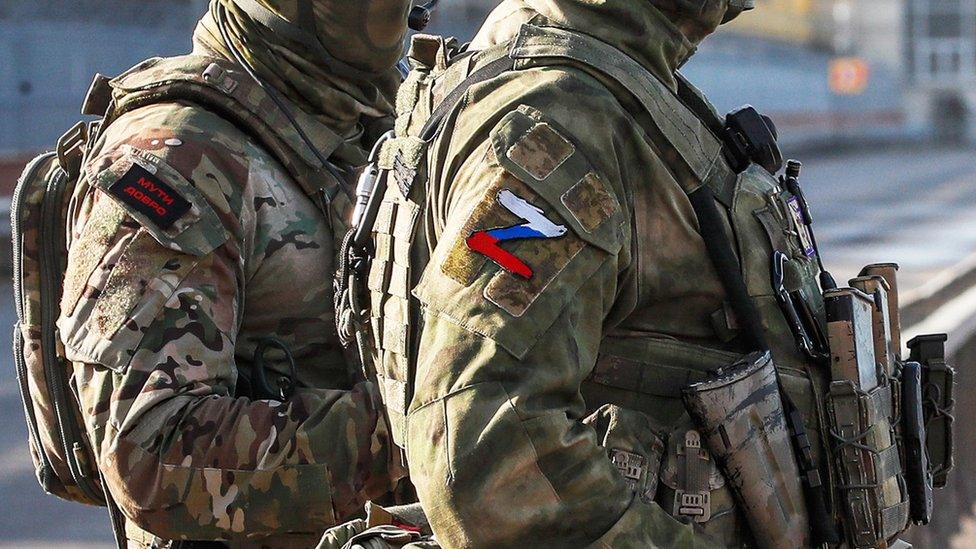
Russian servicemen near Kherson, southern Ukraine
He is now home in Russia, having taken legal advice to avoid being sent back to the front line. He is just one of hundreds of Russian soldiers understood to have been seeking such advice.
"I had thought that we were the Russian army, the most super-duper in the world," the young man said bitterly. Instead they were expected to operate without even basic equipment, such as night vision devices, he says.

Five ways Russia's invasion may play out
Wars ebb and flow and in enormous mechanised conflicts like Vladimir Putin's invasion of Ukraine it can often be difficult to determine who has gained the upper hand.
Despite early fears of a Ukrainian collapse, Russia's offensive in much of Ukraine stalled and its forces were pushed back from Kyiv. That has now been met by a more focused Russian offensive in the east.
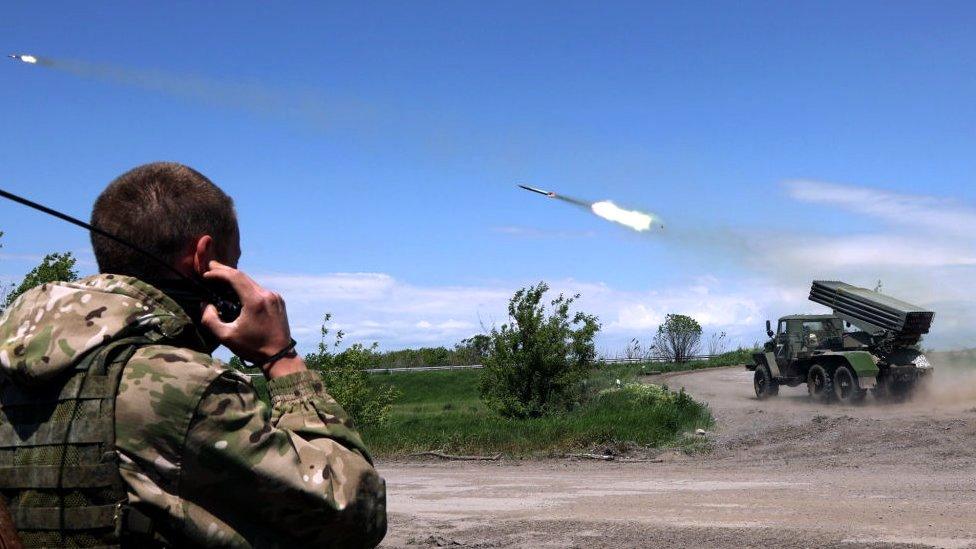
Pro-Russian forces fire a rocket targeting Ukrainian positions in Yasynuvata, Donetsk
But 100 days on, where might this war go next?
The BBC's diplomatic correspondent James Landale presents five potential scenarios - they are not mutually exclusive, but all are within the bounds of plausibility.

How Russian TV has reported the conflict
Since the war in Ukraine began, Russian authorities have clamped down on the country's media. The narrative is set by fiercely pro-war TV stations that have stuck resolutely to the Kremlin's narrative.
At the start of the invasion, these stations refused to call Vladimir Putin's invasion a war.
Now, the strident talk shows that dominate the schedules say repeatedly that Moscow faces World War Three with the West.
Watch: How Russian TV has reported the 100 days of the Ukraine war


Damage and looting at Chernobyl nuclear site
Ukraine says the Russian army looted or damaged more than 1,000 computers at the Chernobyl nuclear power station and stole trucks and radiation dosimeters.
But Chernobyl's information director Vitaliy Medved said nuclear equipment was not damaged and "regarding radiation safety everything is OK".
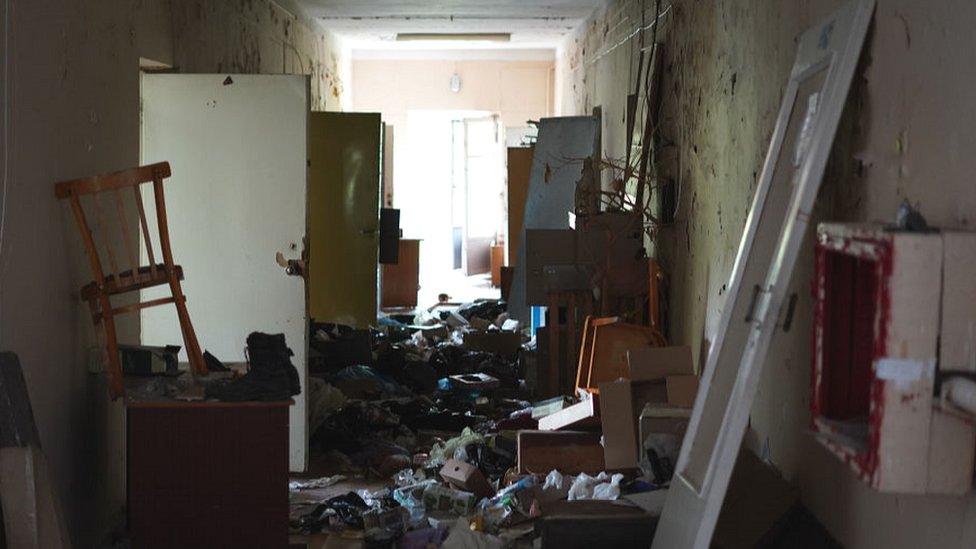
Wreckage left behind by Russian troops at Chernobyl
In the exclusion zone, however, there are some radiation hotspots which Chernobyl's managers blame on the Russian military activity, as troops dug trenches and their vehicles churned up dust.
Yevhen Kramarenko, head of the exclusion zone agency, said thousands of Russian vehicles including tanks had driven through the zone. He said Russia had based more than 1,000 soldiers at Chernobyl.
Read more - Chernobyl scarred by Russian damage and looting

War in Ukraine: More coverage
DIPLOMACY: How long can the Western consensus hold?
FROM THE GROUND: Ukraine war student-turned-soldier: 'It was like hell'
READ MORE: Full coverage of the crisis, external
- Published2 June 2022
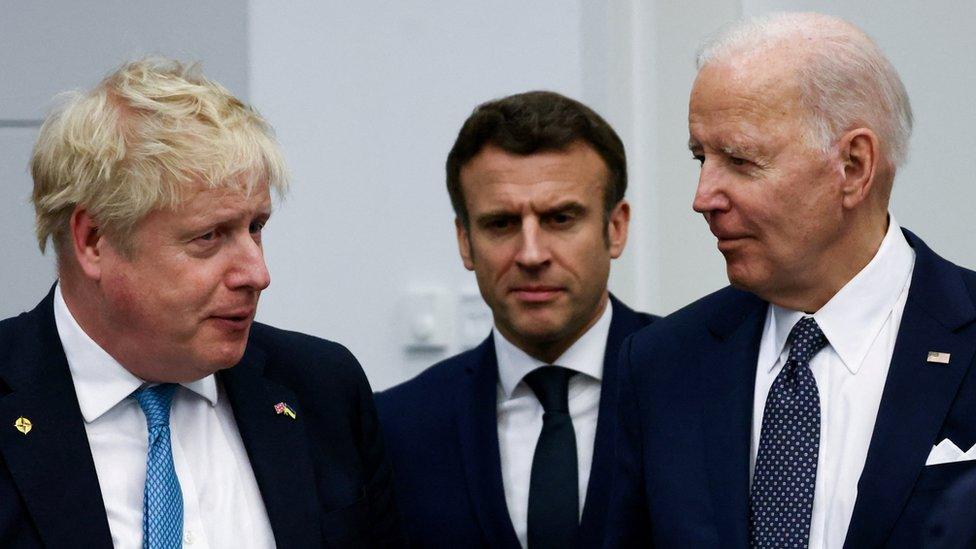
- Published1 June 2022
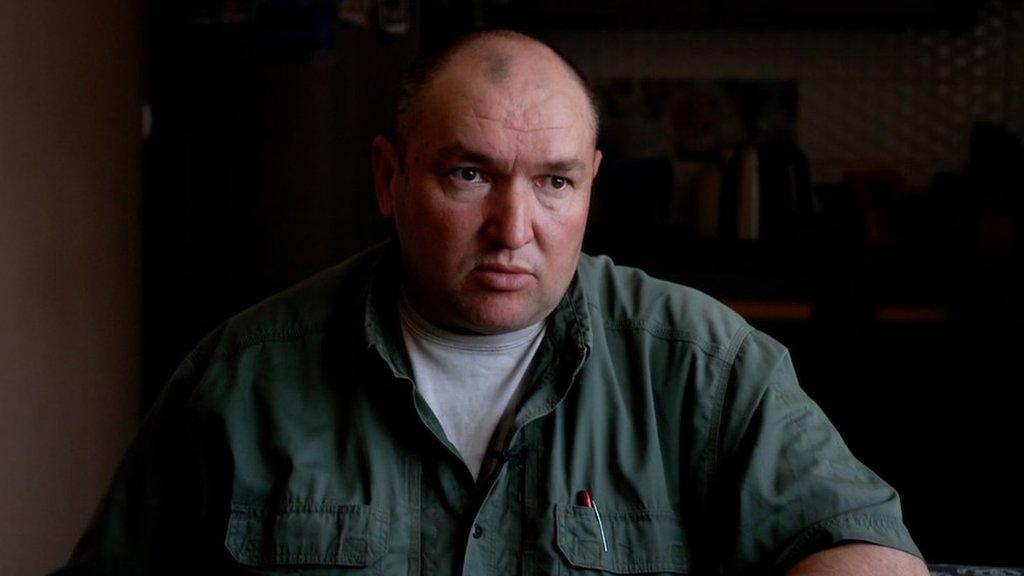
- Published1 June 2022
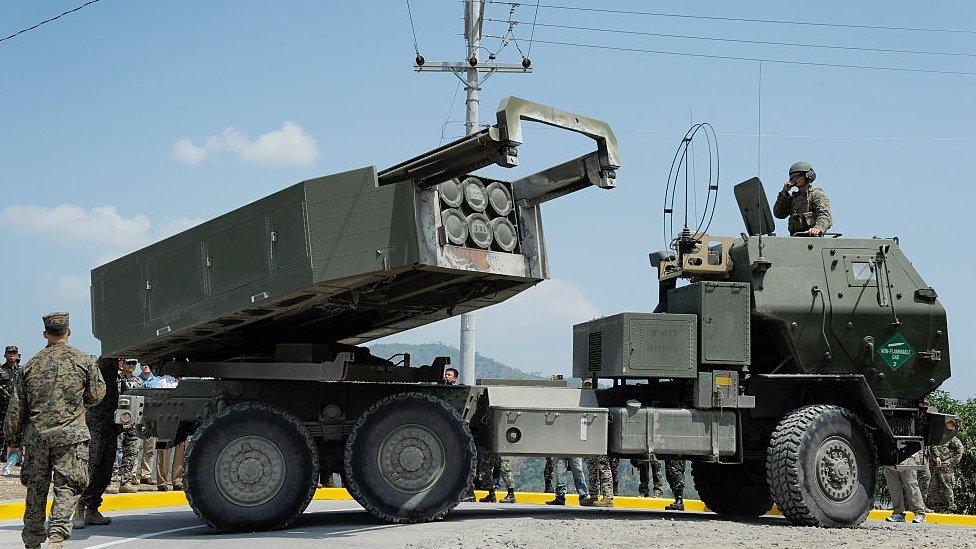
- Published30 May 2022
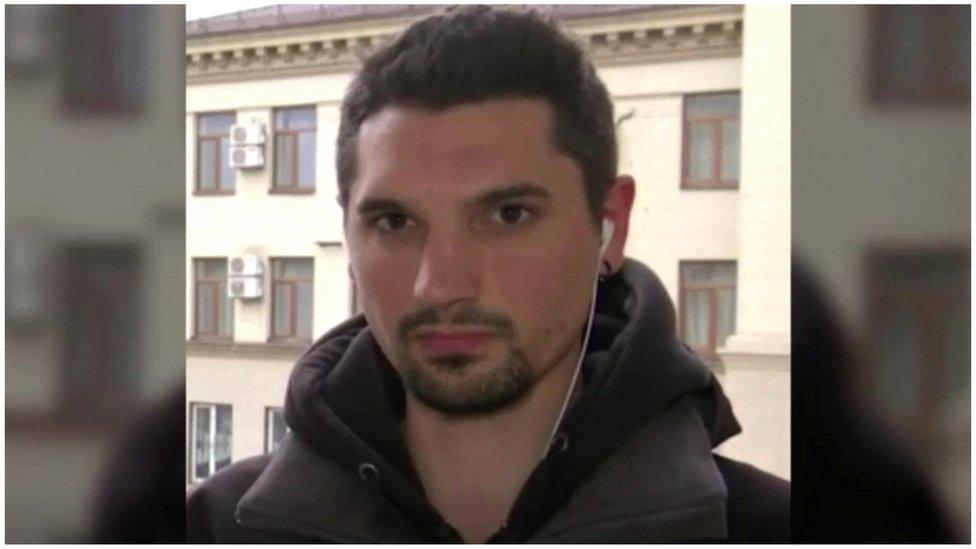
- Published30 May 2022
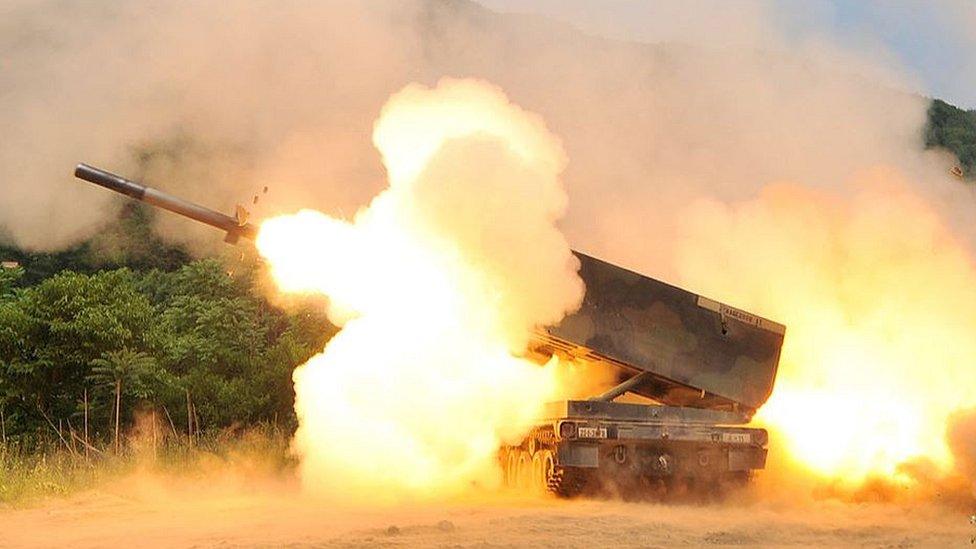
- Published30 May 2022
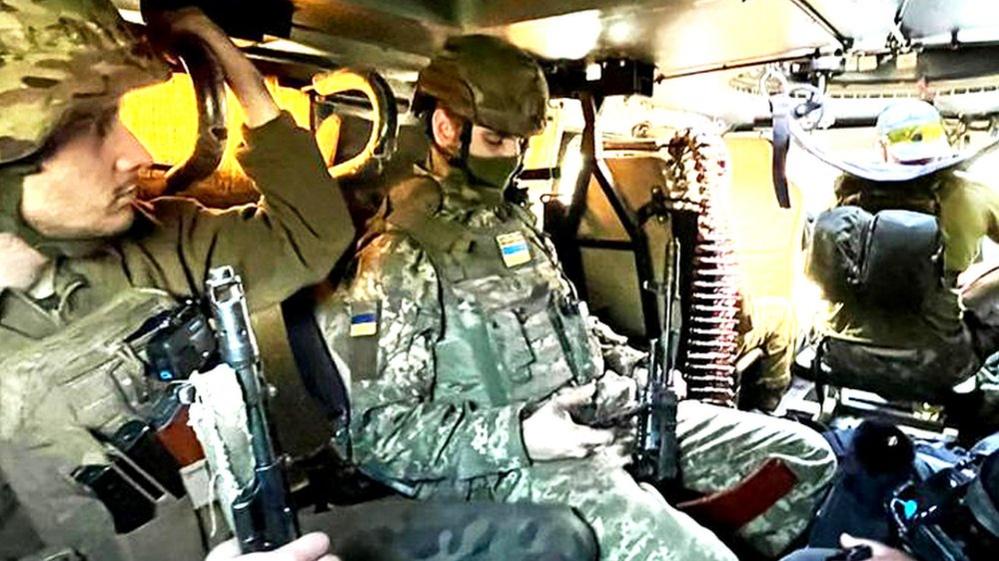
- Published29 May 2022
